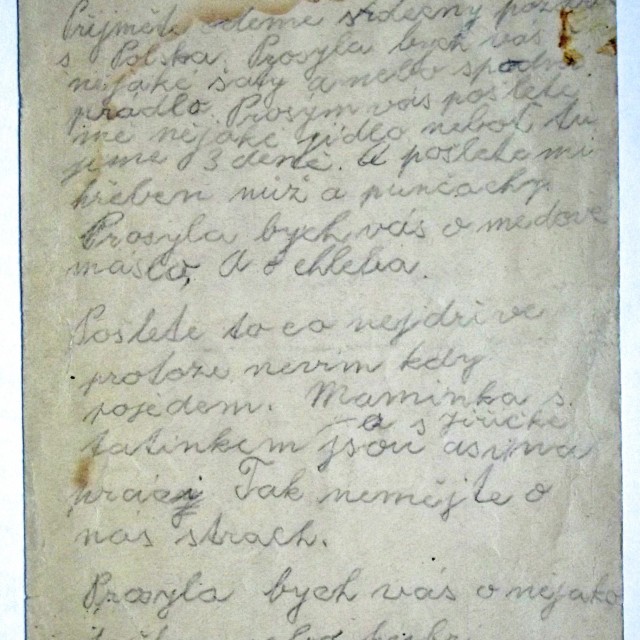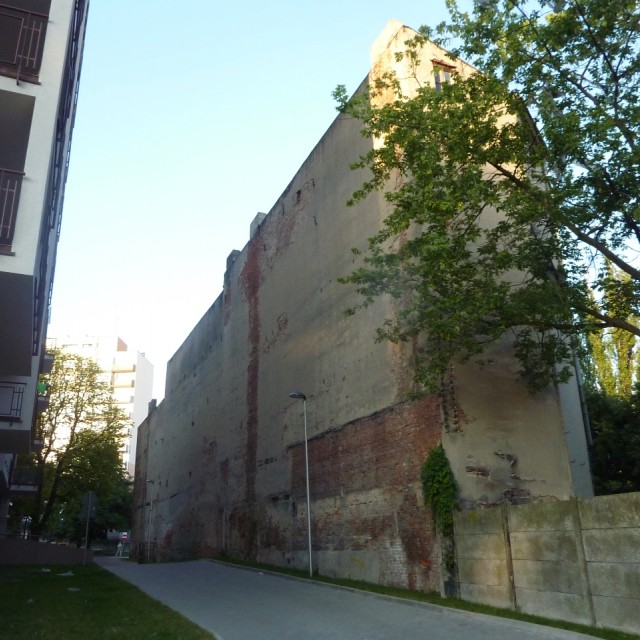The Last Postcard
A group of eighty-eight children dragged off from the Lidice village was imprisoned in the former textile factory in Łódź – Litzmannstadt. A select few lucky boys and girls were chosen for re-education; the rest of the children were given postcards and pencils and told to write a message to someone from the family. The children suffering from hunger, cold and lack of basic hygienic standards wrote pleadings: “Dear Auntie, please accept my hearty greetings from Poland. Could you send me some clothing or underwear? Please, send me also a comb, a knife, and some tights…” wrote Marie Pitínová to her aunt Ms. Kvasničková, who was living in Prague. “Send it as soon as possible, because I do not know when we will be leaving here.” Shortly after that, the children were transported to Chelmno, where they were killed in mobile gas chambers. When the postcards reached their addressees, all of the children were probably already dead. Marie’s brother, Mr. Jiří Pitín who survived the war as an infant, still wonders why the Nazis allowed the children to write these postcards. He can think of only one possible answer: “The postcards were to serve as a proof that the children were well and alive. They were meant to calm the people here in the Protectorate. The postcard is from the 4th of July, which means that at that time, my sister was still alive. Or maybe, she was not, because that was the date on the post stamp.” The postcard is the only memory Mr. Pitín has of his older sister.
Hodnocení
Hodnotilo 0 lidí
Routes
Not a part of any route.
Comments
No comments yet.




